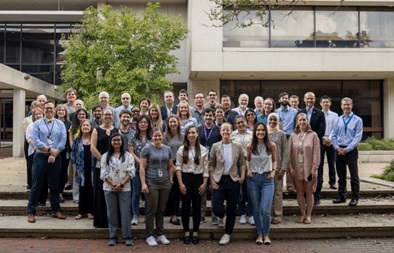Postdoc Enrichment
The value that postdoctoral trainees play in the mission of Pennington Biomedical can be best demonstrated by how they are treated and respected as emerging junior scientists in the field. It is this “culture” of supporting postdocs that has awarded Pennington Biomedical the distinction of being recognized as one of the highest-ranked institutions in The Scientist’s annual listing of Best Places to Work for Postdocs. Pennington Biomedical was ranked 4th on the 2012 listing, among a highly prestigious selection of research institutions. Furthermore, the recent naming of Leanne Redman, Enrichment Core Director, as the 2018 Garnett Powers National Postdoctoral Association Mentor of the Year, and as the recipient of The Obesity Society Thomas A. Wadden 2021 Award for Distinguished Mentorship. Both are the result of widespread nomination from the postdocs at Pennington Biomedical which reinforces the value that our postdocs have of the faculty at Pennington Biomedical.

Postdocs and Mentors at the 2025 postdoc appreciation luncheon
Postdoc Training Grants: A fundamental goal of postdoctoral training at Pennington is to provide postdoctoral fellows with the knowledge and skills to enable them to perform high quality research and develop competitive research proposals for submission to external funding sources such as the National Institutes of Health. Pennington Biomedical has two institutional NRSA postdoctoral training grants. The NRSA Training Grants, include an NIDDK sponsored program and called “Training in Obesity Research” (T32DK064584) and one sponsored by NCCIH, entitled "Training in Botanical approaches to Combat Metabolic Syndrome" (T32AT004094). Almost all participating faculty on these T32 postdoctoral training grants are NORC members. Overall, there are approximately 23 postdoctoral fellows at Pennington Biomedical , many of whom are mentored by NORC faculty.
NORC Led Graduate Courses: Along with working side by side in research activities with our faculty mentors, postdocs attend a two-semester graduate course entitled “Obesity: Biology, Brain, and Behavior” and “Obesity: Comorbidities and Treatments”. The course series is offered each fall through


